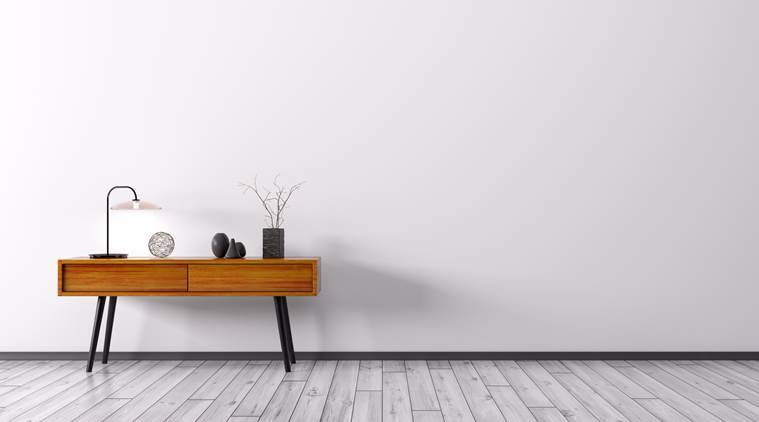Towards minimalism: Where less is more

Minimalism not only helps an individual feel peaceful, but also practically helps in travelling & moving to another place (Photo Credits: Aastha Srivastava)
The World Economic Forum’s report, 2019, Future of Consumption in Fast-Growth Consumer Market – INDIA, says that by 2030, domestic private consumption, which accounts for 60 pc of the country’s GDP, is expected to develop into a USD 6 trillion growth opportunity in India. If realized, this would make India’s consumer market the third-largest in the world, behind the US and China within the next decade.
While India witnessed an unprecedented increase in online consumption of content and commodities, a section of the population, also turned towards giving up on materialistic possessions and living a simpler, more minimalistic lifestyle.
“Living like a minimalist has lessened our worries of losing things. We have only been able to declutter our lives, but also our minds. We find things easily, we spend less time, money and energy on shopping and organising and more than anything, we were able to help someone by giving our possessions to the charity,” says Aastha Srivastava, a Bengaluru-based investment banker and a minimalist.
Srivastava, along with her husband, discovered the minimalist lifestyle during the initial months of lockdown in 2020 and have been living like that since then. For her, minimalism means living with only essential items, giving up personal belongings and abstaining from unnecessary hoarding or shopping.
“During lockdown or home quarantine, even the most prodigal spendthrifts among us have begun to learn or at least show interest in the benefits of minimalism in order to keep safe and secure in an alarming atmosphere of disease, death, deprivation and utter helplessness,” says Srivastava.
While Srivastava has adopted a minimalistic lifestyle recently, Delhi-based Anurag Majumdar, 24, has been a minimalist all his life. Currently pursuing his master’s degree in English from Jawaharlal Nehru University, Majumdar learnt about minimalism from his parents.
“They own only books, a lot of books and nothing else except a few chairs, a table and a bed to sleep on. They rent furniture if required when guests arrive, but they do not possess things that they do not need every day,” says Majumdar.
He says that he has grown up in a very minimalistic home and has been moulded in a minimalist since his early years. It surprises him when he sees other people hoarding a lot of things. “I get shocked to see other people buying and keeping everything they are not even going to use. I see people having a guest room, buying furniture, saving everything extra for that one day when guests might arrive or they might feel like using it,” he adds.
Both Majumdar and Srivastava, are living a minimalist life, where ‘less is more’, according to life coach and minimalism educator Malvika.
Malvika, who lives in Hrishikesh, Uttarakhand, teaches how to practice minimalism and how to live a contented lifestyle without materialistic belongings in a local hermitage in Hrishikesh.
She says that there has been an increase in a number of people adopting minimalism during the last one and a half year. “As venturing outdoors has become a risky option and people lost their jobs and many exhausted their savings, people realised the importance of not spending unnecessarily,” she explains.
She adds that during the initial months of lockdown last year, especially during the months March to August, she counselled and convinced about 400 people to convert to minimalism. “Most people who came to seek help were those who had either financial issues or were unable to cope up with the stagnancy that lockdown brought. I would motivate them to spend their energy creatively rather than lamenting. I asked them to learn new skills and save money. Most of them, even after months today, continue to live with minimum possible possessions.
Though still struggling to find a stronghold among the Indian household, the practice of minimalism is supported by many celebrities like Bollywood actor Dia Mirza, Jim Sarbh and many others. Malvika says that many families or young couples have chosen to go minimalist even for their wedding functions in order to cut on expenditure and wastage.
Minimalism not only helps an individual feel peaceful, but also practically helps in travelling, moving to another place, and many times develop new skills that would help them become self-sufficient. Practitioners also that a minimal lifestyle is of great help to the environment as a decrease in demand and production causes less industrialisation, less production and less pollution.
Malvika also points out that when people who turn minimalist, give up their unnecessary possessions, it helps a lot of others who are in need. “You do not only do good to yourself and the environment but actually helping other human beings by sharing with them things that were once your own. Especially during this pandemic, the charity helps so many people who cannot afford two full meals a day or even clothes,” she says.
She further adds that if one has to understand minimalism in simple words, nobody has explained it better than the famous British textile designer and poet William Morris. “Have nothing in your house that you do not know to be useful, or believe to be extremely rare,” she quotes.









